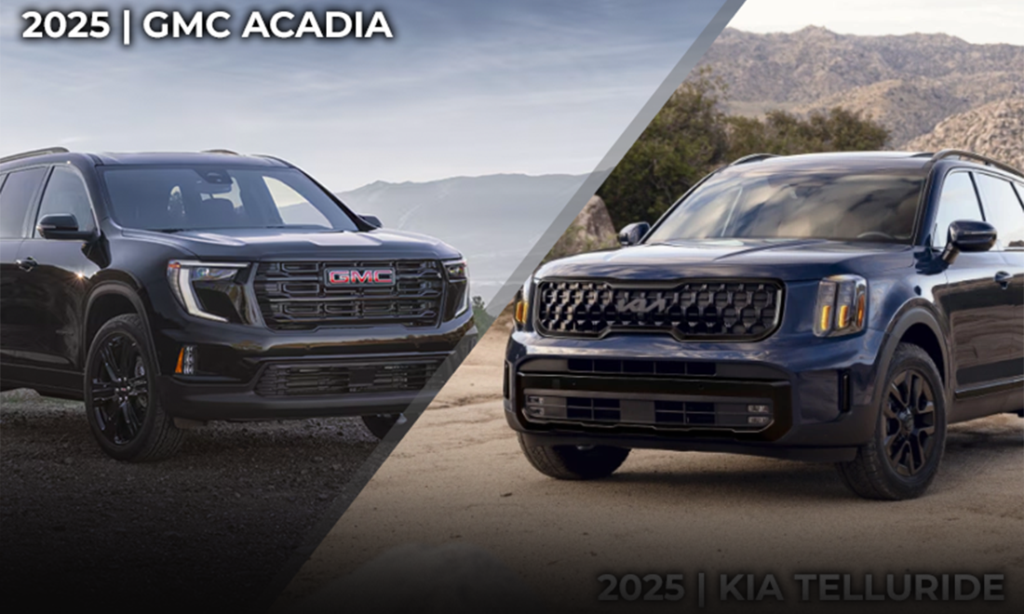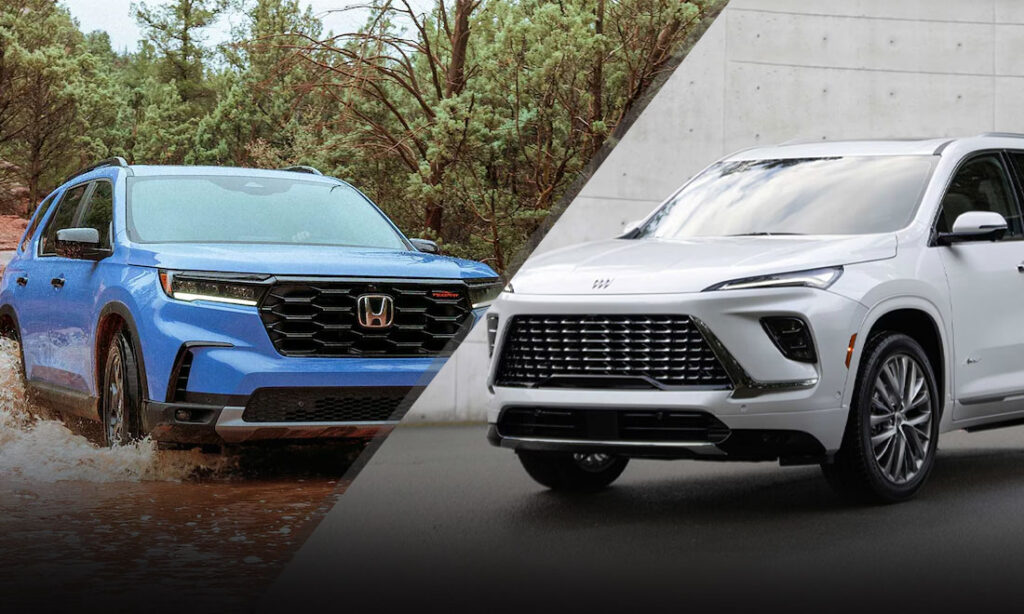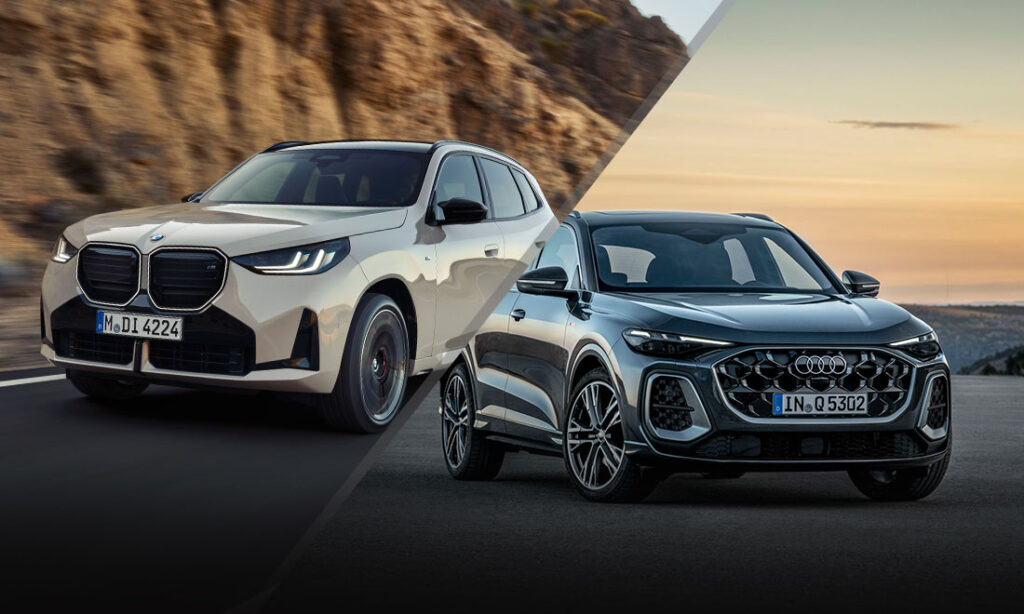Honda CR-V vs Kia Sportage
The Honda CR-V and Kia Sportage are two long-running compact SUVs. We compare both to see which is the better buy.
A Tale of Two Crossovers
We live in a very different automotive world than we did even 20 years ago. The blander, the safer, the more practical, and more economical equals bigger profits for automakers. That’s why you hardly see every wagon or sedan anywhere, and you always see compact SUVs around. Ones like the Kia Sportage and Honda CR-V.
It’s time to sell your Miata, pawn your golf clubs and skiing gear to buy baby formula and diapers, and decide between two of the most popular mid-size crossovers this side of the Atlantic. Whether you pick the Honda or the Kia, the experience could be quite different.
If you take just one look at the CR-V and the Sportage side by side, you could nearly swap the badges between them and not be able to tell the difference if you’re not already in the know. But on closer inspection, we see that Honda opted for a softer, more subtle styling approach. Meanwhile, Kia went the opposite way.
Anointing the Sportage’s front fascia with aggressive fang-like front headlights, which may or may not suit your fancy, was a bold styling move by any measure. It makes the front grille of the CR-V look like a non-playable vehicle in a video game by comparison. But what about qualities beyond skin-deep? That can be best explained by breaking down the trim levels of each model. If compact SUVs are chronic offenders, then both the CRV and Sportage are prime offenders.
Trims, Specs, and Features
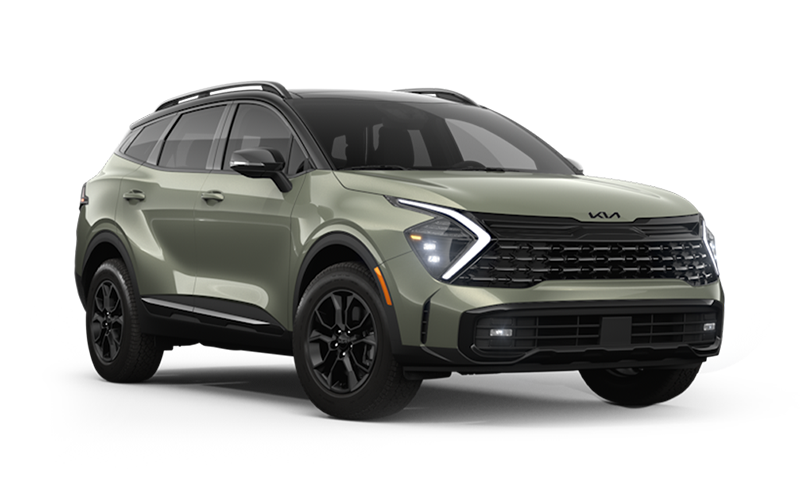
The Sportage Hybrid offers three trims; the LX, EX, and SX Prestige. Plus, no less than seven standard gas-powered trims. On the low end, you can grab a base LX, complete with a two-in-one navigation screen split and gauge cluster, alloy wheels, and cloth seats, for just LX $27,190. The real highlight further into the mid-range has to be the X-Line AWD at $32,090.
Just one trim below, the EX at $29,290, nets you Kia’s Syntex vegan leather seat coverings. The SX and SX Prestige trims at $32,790 and $34,790 give you all this, plus either 18 or 19-inch alloy wheels and an exclusive body kit for a look all its own.
For the disillusioned ex-Subaru drivers in the mix, the X-Pro and X-Pro Prestige at $36,290 and $38,090 net you BFGoodrich Trail Terrain T/A all-terrain tires measuring 235/65R17. You also get special exterior trim pieces in the wheel well and rocker panels to protect from rock chips.
The range-topper X-Pro Prestige nets a full suite of driver assistants. We’re talking LED combination lights, a blind spot view monitor, a surround-view monitor, parking and collision avoidance technology, and ventilated front seats. It’s all powered by a 2.5-liter four-cylinder gas motor jetting a paltry 187 horsepower.
Over on the hybrid side, the 2025 Sportage condenses the crowded range into three trims, the LX at $28,590, the EX at $32,390, and the SX Prestige at $37,590. So then, no dice on an easy-to-decipher model lineup. But, once again, the CRV isn’t much better.
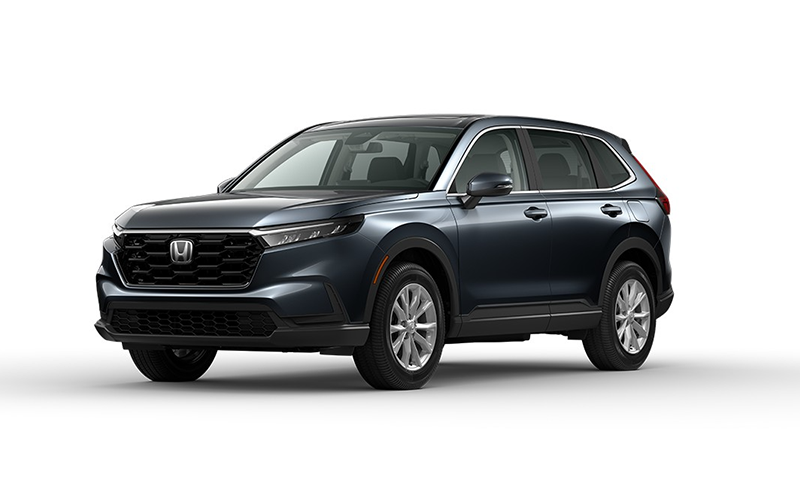
Starting at $31,450 for base model Honda CR-V LX, you’ll be paying quite the entry premium of the Kia to drive the more historic and respected Honda nameplate. But the CR-V is just a touch more adept in features and refinements, even if the design is substantially more conventional. Instead of a blended dual gauge cluster and nav screen, the seven-inch center screen in lower CR-Vs, starting with the LX and nine-inch unit from the EX-L onward, offers a far more conventional approach than Kia.
The Honda CR-V EX has an MSRP of $33,700. The trim level includes a sunroof and a six-speaker stereo system, while the entry-level hybrid Sport model at $35,700 gets a battery-assisted drivetrain, plus a few other goodies like darker contrasting exterior trim pieces and a leather-wrapped steering wheel. Moving to the gas-powered EX-L, the range-topping gas CR-V’s leather seats, nine-inch infotainment screen, wireless charging capability, and eight-speaker stereo give an extra feel of prestige over the lower trims in the range.
If you can believe it, things can get even more luxurious. The hybrid Sport-L trim brings everything from the gas-powered EX-L and adds a hybrid drivetrain at $38,700, and the range-topping Sport Touring hybrid adds 19-inch wheels, a heated steering wheel, and a banging 12-speaker stereo. By the time you reach this part of the range, the CR-V starts to look more like an. When viewed in its totality, it’s clear both the Sportage and CR-V are packed and full of features. But we have to give the advantage to the CR-V by just a hair, only because you have a touch more variety at the high end of the range over the Sportage.
Driving Performance
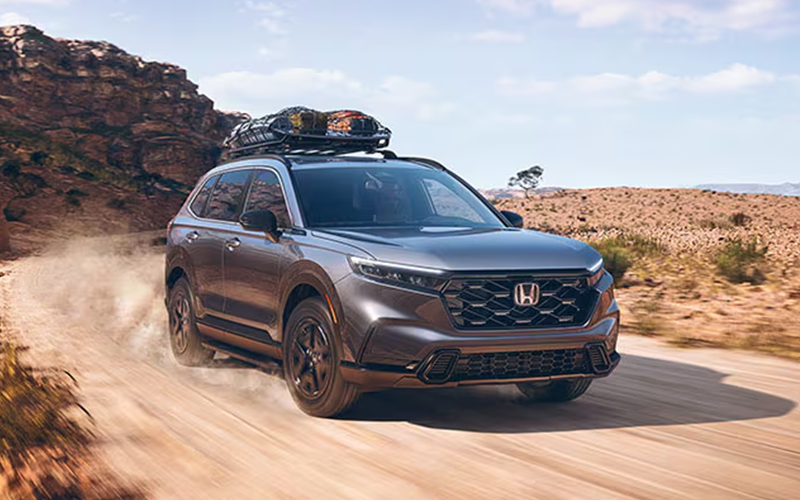
As tight as the race between the CR-V and Sportage in the features department, it’s equally neck and neck in terms of performance for all the wrong reasons. The 187 horsepower and 178 lb-ft of torque made by the Sportage’s 2.5-liter four-pot means you’ll make your way up to highway speeds and not much further. We’re talking zero to 60 in a paltry 9.1 seconds. The 227 horses made by the 258 lb-ft of torque in the hybrid is a little better, good for zero to 60 in around 7.2 to 7.4 seconds.
The CR-V on the other hand, complete with the heritage of VTEC under its hood manages to fail just as hard. It’s to the tune of 190 horsepower out of the regular powerplant and just 204 from the hybrid. With optional all-wheel-drive, the gas-powered CR-V sprints to 60 in 7.4 seconds. Somehow the exact same time as the Kia, despite the negative delta in horsepower between the two. Of course, your results may vary when it comes to two vehicles so uninterested in acceleration. Some outlets have reported the CR-V is even slower.
But besides, no one cares how fast these two are. They care about how fuel-efficient they are. In that regard, 28 and 25 combined MPGs from the gas-powered Sportage in FWD and AWD, plus 38 and 43 MPGs from the FWD and AWD hybrids, keep right about in line with the competition. Meanwhile, the 30 and 28 MPGs from the gas-powered CR-V are pretty much normal, too. It’s the CR-V hybrid that really shines through here. With 40 combined MPGs on tap in front-wheel-drive getup and just three less with four drive wheels, the CR-V Hybrid is a titan in its class in the metric that matters most.
The Verdict
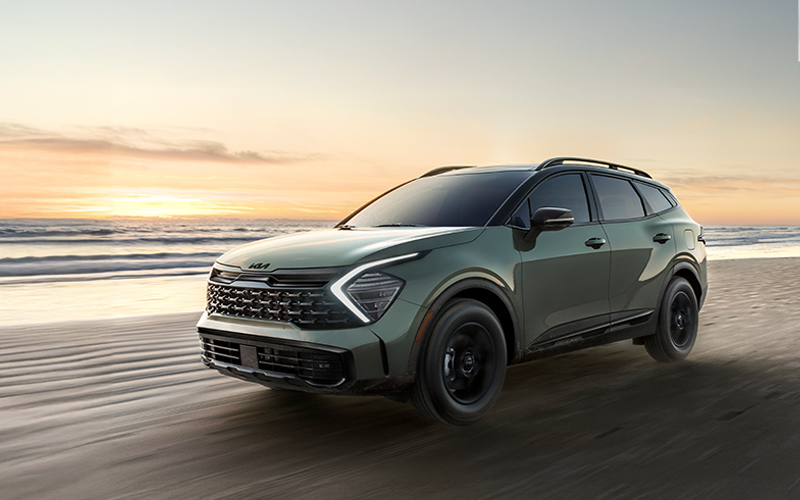
The Sportage does have a better warranty, a five-year, 60,000-mile basic and ten-year, 100,000-mile powertrain coverage plan, compared to three-year and 36,000-miles basic and five years, 60,000 miles on the powertrain.
Apart from fuel economy, where the Honda takes a comfortable lead in the hybrid department, the decision between the CR-V and Sportage is a real nail-biter. With radically different approaches to styling and similar performance, other factors will determine which one we think you should drive home. Rear legroom is good in the CR-V; a full 41 inches. Want to know how much the Sportage has? Precisely 0.3 inches more than the CR-V.
That’s a pretty substantial advantage on the part of the Kia, but we don’t think it’ll sway people to avoid a Honda. Rather, if fuel economy and enough space for three kids in the back are all you’re after, the CR-V Hybrid is a marginally better option by the slimmest of figures.
If excitement is what you’re after, the off-road-focused Sportage X-Pro and X-Pro prestige give a fun offering that Honda simply ignores at this price point. Once again, it comes down to specific use cases. But if we had to pick one to save our lives, the Sportage X-Pro’s fun factor brings the Kia over the line just a micron before the Honda. Here’s your hot take for the week. You’re welcome.


